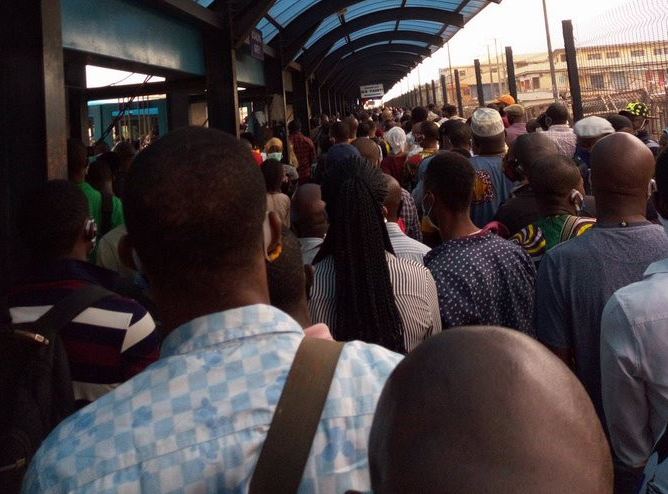After five weeks of grounded activities in Nigeria, residents of the country’s commercial hub, Lagos, seemed impatient to go back to their lives and businesses on the first day of lockdown ease.
Photos and videos of crowded banks have been circulating on social media. In some, residents pushed and shoved to get through locked gates and in others, a mammoth crowd of people wearing face masks gathered in queues with closed up personal spaces.
UPDATE -people trying to gain entrance into Access bank Ikotun today. pic.twitter.com/LrC86GSIOs
— TA (@tope_bisade) May 4, 2020
However, the notorious traffic jams were absent as some people chose to remain indoors. Most bus stops, normally bustling with commuters, had a few stranded passengers and the popular yellow minibuses were missing.
With increasing numbers of coronavirus cases and deaths that have climbed more than 20-fold since the lockdown was announced, there are concerns that the decision to ease restrictions in Nigeria has come too soon.
The country’s medical associations have warned that there could be consequences.
For many, the decision to ease restrictions was more an economic one that had little to do with health reasons.
Meanwhile, many employers in Lagos have asked their workers to continue working from home and some business owners, unsure about the government’s decision, say they are in no rush to reopen their doors.
But as President Muhammadu Buhari said, the lockdown had come “at a very heavy economic cost” and that many citizens have lost their means of livelihoods.
“No country can afford the full impact of a sustained lockdown while awaiting the development of vaccines or cures,” he said.
This was a tussle between saving Nigeria’s fragile economy and an ailing health sector battling a deadly virus.
It seems the government has hedged its bets on the economy.
